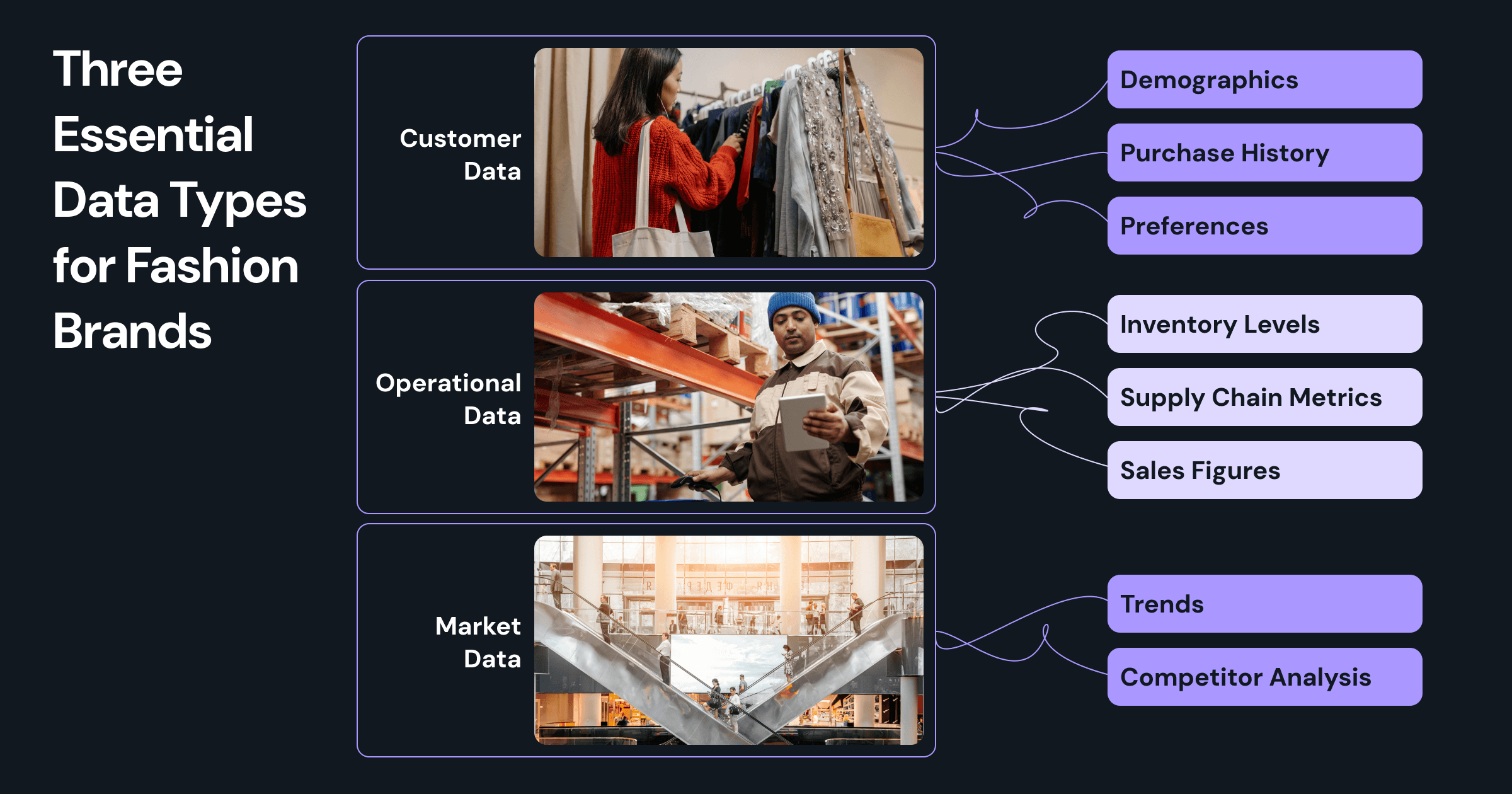
Head of Partnerships at DigitalGenius
Customer Data
Demographics: Information such as age, gender, location, and income level helps brands tailor their marketing efforts, especially when coupled with behavioural data. Monitoring the differences between demographics - such as pages visited, time spent, and cart abandonment rates - provides insights into their shopping behaviour and areas for improvement in the user experience.
Purchase History: Keeping track of what customers buy, including the frequency and timing of purchases, helps in understanding buying patterns and preferences. This data is essential for personalised marketing and effective inventory management.
Preferences: Data on preferred styles, colours, and sizes can inform product development and stock decisions. This is exponentially more valuable when combined with customer feedback received through reviews and surveys. This type of data offers direct insight into customer satisfaction and areas for product or service improvement.
Example:
Benefit Cosmetics uses AI-driven analytics to segment their audience based on behaviour and preferences. By doing so, they create highly targeted email campaigns that resonate with different customer segments, resulting in higher engagement and conversion rates.
Operational Data
Inventory Levels: Real-time tracking of inventory levels and a stock sync across channels & locations helps in maintaining optimal stock levels. This is critical to prevent overstocking (which ties up cash in stock sitting on the shelf) and overselling (which disappoints customers by selling products that weren’t possible for them to buy). Ensuring timely restocking of popular items prevents sellouts and the resulting loss of potential sales.
Supply Chain Metrics: Monitoring metrics such as supplier performance, lead times, and delivery accuracy aide the development of efficient and reliable supply chain operations, which is critical for meeting customer expectations.
Sales Figures: Detailed sales data helps to identify sales trends and make informed strategic decisions. This usually involves tracking sales across different periods and regions, different collections/categories, products, sizes, colourways, etc.
Market Data
Trends: Obviously, it’s critical in fashion to keep your finger on the pulse. Keeping up with the latest fashion trends and market movements allows brands to stay relevant and competitive. From a ‘data’ perspective, staying abreast of these developments helps in anticipating customer preferences and adapting product offerings accordingly.
Competitor Analysis: A key element of understanding trends and market movements is keeping one eye on what competitors are doing; including their product offerings, pricing strategies, and marketing tactics. Staying up-to-date on competitive activity provides valuable insights for positioning your brand in the market.

AI concierge for Ecommerce


